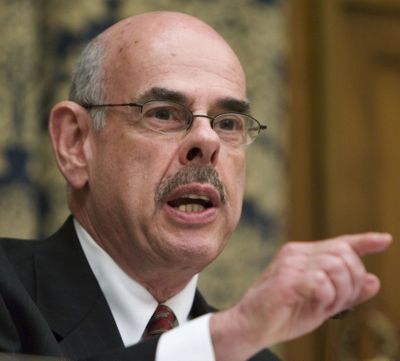House Democrats seek deal on emissions bill

WASHINGTON – House Democrats said Tuesday night they would scale back some of the most aggressive provisions of a bill to cut greenhouse-gas emissions, a compromise designed to win the votes of fellow Democrats whose states rely on coal or heavy industry.
Such a deal would give a crucial boost to a bill that is a key priority for both President Barack Obama and Democrats on Capitol Hill. It had run aground amid concerns that it would cost too much or weigh too heavily on states in the Midwest and West.
Rep. Henry Waxman, D-Calif., one of the bill’s architects, said the compromise should ensure rapid passage in the House Energy and Commerce Committee. Waxman, chairman of the committee, vowed weeks ago to get the bill to the House floor by Memorial Day.
“I’m optimistic we’re going to pass it by the end of next week,” Waxman said, calling Tuesday night’s changes “the basis for an agreement that will bring us the votes.”
The basic structure of the bill remains unchanged: It calls for a “cap and trade” system, in which the federal government sets a national limit on greenhouse-gas pollution, and ratchets that limit down over time. The “trade” part of the system would allow some polluters to buy pollution credits, from the government or from others, to cover their emissions.
But the changes do lower some aims of the bill, and they also fill in some details left out of the original draft.
That first draft called for a 20 percent reduction in U.S. greenhouse-gas emissions by 2020. Under the new agreement, the goal would be a 17 percent reduction.
Also, the bill originally called for all states to get 25 percent of their electricity from renewable sources by 2025. Under the new version, the standard would be lowered to 15 percent by 2020, plus a requirement to reduce energy use by 5 percent every year through increased energy efficiency, Hill staffers said.
Democrats from states that get most of their electricity from coal – which has particularly high emissions – had warned that the 25 percent standard could force them into a rapid, costly shift.
The changes also clarified some details of how the government will parcel out pollution credits. Some environmental groups had called for all such credits to be auctioned off, with the money funneled to energy-efficiency projects or back to taxpayers.
But Tuesday night’s compromise said that some of the credits would be given out for free – and that 35 percent of those would be given to local electrical distribution companies.
Waxman said that he did not believe that compromise ruined the bill’s environmental promise. “I think we’re going to be right on track” with the changes that scientists recommend, he said.
At the Natural Resources Defense Council, which has pressed for caps on emissions, Daniel Lashof said the changes were acceptable. “Overall, it sounds like an agreement that is going to move this forward. And that’s a good thing,” said Lashof, the director of the organization’s climate center.